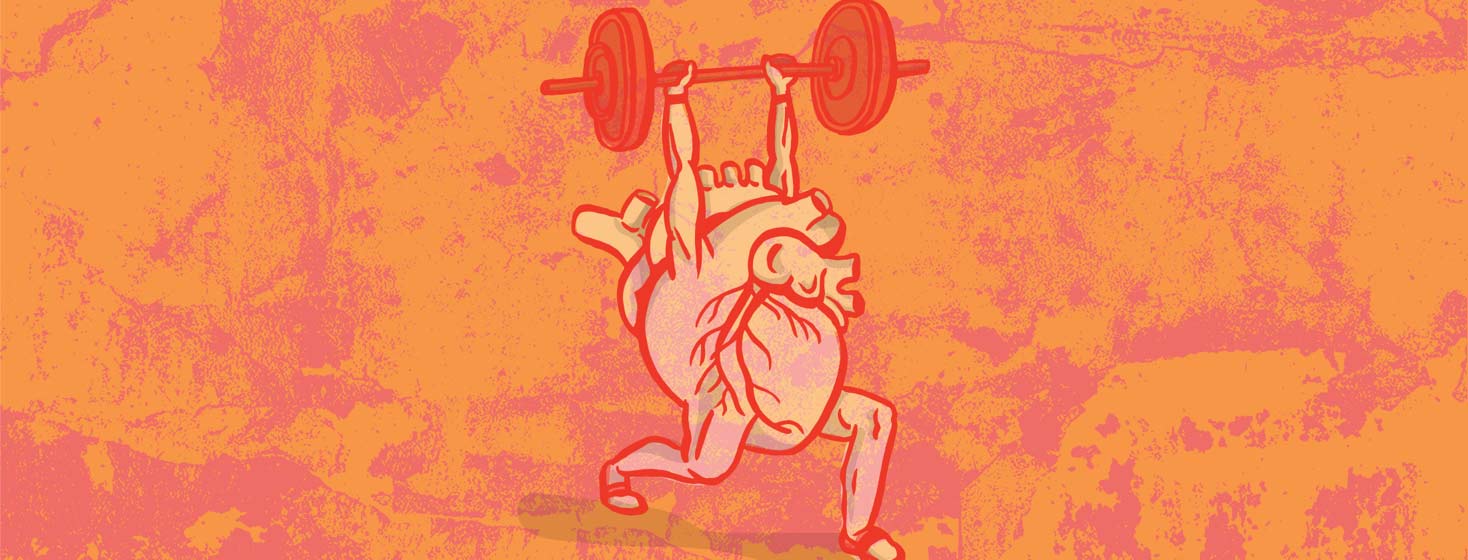My Stroke Rehabilitation Experience
When I had a stroke and was diagnosed with dilated cardiomyopathy, I didn’t know what kind of twists and turns I would have to go through. When I had the first stroke, it was backstage at a fitness competition, and luckily, there were EMTs there at the event when I fainted.
I didn’t have to go through rehabilitation for the first stroke because the doctor didn’t see any deficits. But when I suffered another massive stroke 4 years later, it was clear that rehabilitation would be necessary.
This or That
Do you have experience with strokes?
My cardiologist dismissed my concerns
Before the second stroke, I was telling my cardiologist that I wasn’t feeling well, and he just kept insisting that nothing was wrong. Even though the markers for heart failure were elevated in my blood work, my cardiologist kept dismissing me. I suffered until I had a second stroke.
I had lost my ability to speak
After the doctors removed the clot, they had to see how my body would respond and if I would have any lasting deficits.
When I woke up from the surgery, I was so confused as to why I was in the hospital. My eyes opened just as my dad was walking into the room, and that’s when I realized that my speech had been affected. I was diagnosed with aphasia, which is the loss of the ability to talk.
Rehab would teach me how to be independent again
The next thing that I noticed was that I could barely move my right side. Not only could it not move with ease, but I couldn’t type texts on my phone, and I couldn’t write.
My doctors wanted me to go to the hospital's inpatient rehab facility, where I would receive speech therapy, physical therapy, and occupational therapy. They would teach me how to be independent again. I was excited to go to rehab because it meant that I was just 1 step from progressing back to a normal life.
An assessment with a physical therapist
On the first day of rehab, I woke up bright and early with my schedule for the day. I had breakfast, and then the physical therapist came to meet me.
We walked to the main area where they had people doing different things. They had 3 steps where patients could practice going up and down the stairs, as well as patients doing balance exercises.
The therapist took me to do a physical assessment, where they see your baseline and where you are starting from. After the assessment, the therapist told me I wouldn’t be there long because I scored pretty high on the scale they had. I believe it’s because of my athletic background.
Meeting with a speech therapist and occupational therapist
After that session, the speech therapist came to my room, and I had to exercise my speaking muscles. One of the exercises the therapist told me to do is to stick my tongue out and move it up, then down, and then move it from side to side. Then, the next exercise was to smile and hold for about 15 seconds.
There were also numerous cognitive skills the therapist was looking for me to have, like reading comprehension, because when you have aphasia, you may have trouble reading and understanding what you’ve read. Also, it gave me practice for conversation. I had to match and identify objects and read aloud. The reading helped me exercise my mouth and say words.
The final therapist that came was an occupational therapist. They teach patients how to be independent and do daily tasks such as putting on their shoes and tying them or buttoning up a shirt. This therapist also had me do exercises with money and making change.
Continuing care after rehab
After leaving the rehabilitation center, I continued to receive visits from speech and occupational therapists at my home, because those were the therapies that needed more improvement. The occupational therapist was important because I needed to learn how to write again. My right hand was affected, and I am right-side dominant. He taught me how to cut vegetables on a cutting board and how to cook for myself again.
This wouldn't be possible without rehab
Currently, I can do everything with no deficits, but when writing, I have to write very slowly or else it won’t be legible. My left side is stronger than my right side, but luckily, everything is done on the computer now, so writing isn’t something I do daily.
I used to have social anxiety because I wasn’t comfortable talking to people — I wasn’t confident in my speaking skills. Now, I’m giving lectures to hundreds of future cardiologists, and that wouldn’t have been made possible had I not gone to rehab.

Join the conversation